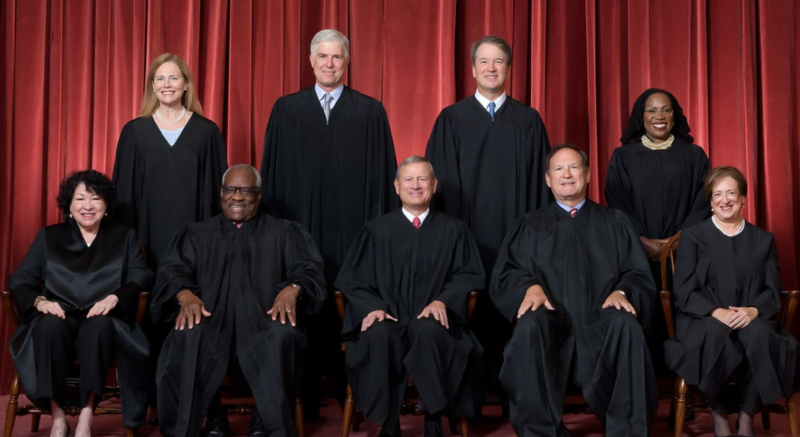Category Archive: 6b.) Mises.org
The Fed Pivot
Stock and bond markets are abuzz this week over Chairman Jay Powell's hints of a "Fed Pivot" in interest rate policy. Mark Thornton explains why this optimism is badly misplaced.
Be sure to follow Minor Issues at Mises.org/MinorIssues.
Get your free copy of Murray Rothbard's Anatomy of the State at Mises.org/IssuesFree.
Read More »
Read More »
Dean Baker Debates Bob Murphy on Recession Outlook
On a recent installment of the Pynx debate series, Bob had a friendly debate with Dean Baker on a soft or hard landing in 2024. In this episode of the Human Action Podcast, Bob comments on the key disputes, underlying the differences between the Austrian and Keynesian frameworks.
Bob's Debate with Dean Baker: Mises.org/HAP427a
Bob's Paper on the Inverted Yield Curve: Mises.org/HAP427b
Join Tom DiLorenzo, Joe Salerno, and Patrick Newman in Tampa...
Read More »
Read More »
Authorities in Jamaica Endorse Cancel Culture
The trend of punishing people in Jamaica for being disrespectful is becoming troubling. Citizens support penalizing uncouth characters without recognizing that sanctions violate free speech. During the apex of lockdown hysteria, one man was coerced by the police to apologize after daring to criticize the prime minister. This act of overreach by the police was unsurprisingly lauded by a wide cross-section of society. Although this act was condemned...
Read More »
Read More »
Henry Kissinger: War Criminal and Enemy of Mankind
Get ready to see George W. Bush, Michelle Obama, Mitch McConnell, and Hillary Clinton all mourn together at Kissinger's funeral as they hail one of the regime's most devoted apologists.
Original Article: Henry Kissinger: War Criminal and Enemy of Mankind
Read More »
Read More »
The Anatomy of the Statist
Statists reveal their belief in the almighty state in many different ways, but they all want the same outcome: more government control over our lives.
Original Article: The Anatomy of the Statist
Read More »
Read More »
President Biden Is Wrong. Military Spending Does Not Produce Wealth
In his latest defense of bloated military spending, President Joe Biden claims that the military budget creates real wealth. Instead, military spending is destroying it.
Original Article: President Biden Is Wrong. Military Spending Does Not Produce Wealth
Read More »
Read More »
How the Free Market Drove History’s “Great Enrichment”
Beyond Positivism, Behaviorism, and Neoinstitutionalism in Economicsby Deirdre Nansen McCloskeyUniversity of Chicago Press, 2022; 222 pp.
Deirdre McCloskey is a great economic historian, and in Beyond Positivism, she makes a number of valuable points that draw from her immense learning in this field. I’d like to concentrate on a few of these insights in this week’s column.
She stresses the importance of the “Great Enrichment,” the process by which...
Read More »
Read More »
The Immorality of Protectionism
Protectionists are no better than any run-of-the-mill Progressive who wants more taxes on one group in order to subsidize some other group. There's no moral high ground here for the protectionists, just unfounded self-righteousness.
Original Article: The Immorality of Protectionism
Read More »
Read More »
Government Prohibitions on Raw Milk Are Ignorant and Dangerous
“Salus populi suprema lex.” The health of the people is the supreme law.
As ruling ideals go, this is a good one. Unfortunately, the governing class in America decided long ago that raw milk—one of nature’s most perfectly nutritious substances—must be regulated and prohibited to the point of making it nearly impossible to obtain. In its place, they teamed with the dairy industry to promote pasteurized milk, a lifeless liquid so devoid of the...
Read More »
Read More »
The Evil of the Residential Property Tax
According to the Case-Shiller index, home prices have increased 44 percent since February 2020. That's just an average, of course, and some markets have seen increases in prices that are far higher. Even in middle-American housing markets, however—where home prices are supposedly more reasonable than on the coasts—prices have soared. In Cleveland, for example, the index is up 40 percent since early 2020. During the same period, the index rose 50...
Read More »
Read More »
Conservatives Shouldn’t Assume the Supreme Court Will Save Trump
This week’s decision by the Colorado Supreme Court to ban — for now — Donald Trump from the state’s presidential ballot is the latest escalation in the broader theatre of deteriorating political norms in America. The four-three decision is grounded in the Court’s opinion that Trump’s actions on January 6 represent culpability in an attempted “insurrection” and therefore disqualify him under the Fourteenth Amendment.
The response to the court’s...
Read More »
Read More »
The First Enemies of Free Markets Were Conservatives, Not Socialists
British conservative critics of industrialization invented new terms like "wage slavery," "factory slavery," and "white slavery." Much of the conservatives' terminology and their arguments would later be adopted by socialists.
Original Article: The First Enemies of Free Markets Were Conservatives, Not Socialists
Read More »
Read More »
Let them Merge: Foreign Acquisition of US Steel
Economic nationalists are once again fawning over Democratic US senator John Fetterman from Pennsylvania. First it was for his opposition to Chinese-owned US farmland. Now he is opposing the acquisition of United States Steel Corporation (US Steel) by a Japanese company. This acquisition, however, should not be blocked. It should be embraced. The justifications for government intervention are not convincing.
News broke Monday, December 18, that...
Read More »
Read More »
Does Anyone Know What the Fed Is Doing?
On this episode of Radio Rothbard, Ryan McMaken and Tho Bishop are joined by Mark Thornton to discuss Jerome Powell's most recent announcement. As the Fed signals its potential for a policy pivot, other members of the FOMC are sending other signals. What does this mean for monetary policy, the dollar, and the performance of the real economy? Thornton is here to answer these questions and more.
"Will Powell's Pivot Bail Out...
Read More »
Read More »
The Fed-Enabled Apartment Bubble Is Unraveling
Thanks to Federal Reserve intervention, apartments and apartment buildings have turned into giant malinvestments. Once again, a federal entity intervenes in markets presumably to make them work better, but things end in a crisis.
Original Article: The Fed-Enabled Apartment Bubble Is Unraveling
Read More »
Read More »
Do Destroyed Monuments Represent a Past Not Worth Defending?
The wonderful thing about liberty, property rights, and markets is that if you don’t like something, you don’t have to be a part of it. Under pure and beautiful capitalism, consumers are sovereign: they’re not forced to consume something, and their value creation isn’t expropriated to finance what someone else thinks is important.
A liberal order based on individual property rights thus becomes a conflict-minimizing system in that we can leave one...
Read More »
Read More »
Virtual Mises University 2024
Join 2024's Virtual Mises University for only $45—or join free for Mises Institute Members (use your promo code on the back of your Membership card).
For almost thirty years, Mises Institute scholars have presented at Mises University, a world-class, week-long, intensive event in Austrian Economics. Virtual Mises University is the online component of this seminar for students, professionals, business people, and absolutely anyone, anywhere, who is...
Read More »
Read More »
Rothbard and Mises vs. Calhoun on the Natural Right to Secede
There are many reasons to support the breaking up states into smaller pieces. This is done via secession, and acts of secession produce smaller states. All else being equal, smaller states tend to be richer and they tend to have lower taxes. They tend to exercise less power over the resident population—because it's easier for people to escape smaller states than larger ones. Moreover, setting these tangible and practical considerations aside,...
Read More »
Read More »
Our Friend the State
Economics in America: An Immigrant Economist Explores the Land of Inequalityby Angus DeatonPrinceton University Press, 2023; xiii + 273 pp.
Economics in America disappointed me, but I have only myself to blame. As you would expect from a Nobel laureate, Angus Deaton is very smart and erudite, but what you might not expect is that he is funny as well. The book contains much good sense, but it is quite unsympathetic to the free market. And this is...
Read More »
Read More »
What, Me Normative?
Visions of Inequality: From the French Revolution to the End of the Cold Warby Branko MilanovicHarvard Univerity Press, 2023; 359 pp.
Branko Milanovic’s Visions of Inequality contains one of the most misleading statements I have ever encountered by an author about the contents of his own book. Milanovic, an eminent economist who teaches at the City University of New York and was formerly the lead economist at the World Bank, addresses in this book...
Read More »
Read More »





























